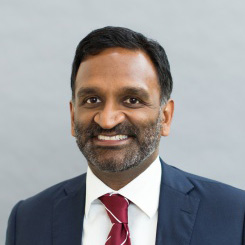In my opinion, those words coming from the mouth of Declan Ganley were the most memorable from our distinguished speakers at yesterday’s conference “From Aid to Enterprise: Economic Liberty and Solutions to Poverty” in London.
Ganley compared what European governments were doing in their attempts to deal with their sovereign debt problems with the attempts of rock stars to solve the problem of hunger in Africa with Live Aid back in the 1980s. It was just one of many precious remarks coming from the Irish entrepreneur who also led his country’s ultimately unsuccessful campaign against the Lisbon Treaty. As someone who’s quite committed to a unified Europe, he worries a lot about the future of the European project, should the euro no longer serve as a common currency. We’d all be better off if governments just let creditors that made bad loans bear the brunt of their decisions, Ganley told us, instead of trying to prop up banks that are considered “too big to fail.” The problems affecting Europe is also the same one that plagues many developing nations – the collusion of big government and big business to squash competition. As a result, Europe and to a lesser degree the United State are in no position to preach and need to get their own houses in order, a lack of meddling that could well benefit poor countries in the end if we recover the importance of enterprise and trade.
Some of the other speakers, such as Lord Brian Griffiths and our own Anielka Munkel, very ably addressed the importance and centrality of the human person along with the vital role played by social institutions such as the family and churches in the free society. It’s a relatively straightforward, even obvious point but one that’s under attack in international development circles. (I can add from my personal experience with the Holy See at the United Nations that many developed, and especially European, governments refuse to admit the role of parents and the family in development, and I have the battle scars to prove it!)
Antoinette Kankindi of Strathmore University in Nairobi did something I’d never seen before as a student of political philosophy and economics by bringing Aristotle and his discussion of work and leisure into a conference on foreign aid. Prof. James Tooley gave the remarkable story of low-cost private schools in many parts of the developing world and how they thrive where governments are most inefficient and and ineffective, all drawn from his book The Beautiful Tree. The Ghanian entrepreneur Herman Chinery-Hesse also related many funny-if-not-sad accounts of doing business in places where State officials try to pick winners and losers.
For me, the most edifying presentation was the one by Marcela Escobari from the Kennedy School of Government at Harvard, of all places. Using a lot of new mapping data, she destroyed many of the myths surround how countries grow out of poverty and underlined the importance of increasing economic complexity, the diversity of knowledge and even imitation, rather than narrow specialization and an overemphasis on innovation, for developing countries. We don’t often have a speaker with such a good grasp of new research and important technical details at an Acton conference but her contribution makes me think that we should.
There were many good questions from the audience about the challenges of Christian individuals and organizations in the development field and I’d say the take-away message from our panel was: do not involve yourselves in misguided foreign aid schemes in the name of charity, which only serve to exacerbate the scandal of poverty and corruption in many parts of the world. It looks like the message was well-received, even if, in the end, a certain Londoner named Tony did not grace us with his presence.

